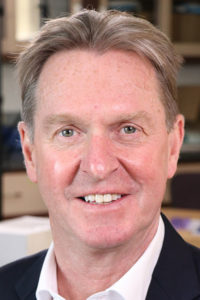
The ADA and the European Association for the Study of Diabetes (EASD) published a consensus report on precision diabetes medicine in 2020. Scientific Sessions attendees will get an update on this joint initiative during the symposium Precision Diabetes Medicine—A Joint ADA/EASD Initiative. The two-hour session, which will be livestreamed for virtual meeting attendees, begins at 4:00 p.m. CT Saturday, June 4, in Great Hall A at the convention center.
“People with type 2 diabetes vary greatly in their age at onset and clinical characteristics such as body weight and blood glucose control,” said John M. Dennis, PhD, Senior Research Fellow at the University of Exeter Medical School, United Kingdom. “There are also considerable differences in diabetes progression and outcomes. Some people seem to progress very rapidly to diabetes complications, while others seem to have a milder disease course. Precision diabetes medicine is aiming to use these differences between individuals to target treatment and improve clinical care.”
Dr. Dennis will discuss new approaches to using the pathophysiology and clinical phenotypes of type 2 diabetes patients to help optimize diabetes care and outcomes during the session. A main focus for Dr. Dennis is using clinical data that are routinely collected during medical visits—including age, sex, BMI, A1C, kidney function, and liver function—to build predictive models to optimize clinical care.
“We are using cutting-edge data science to build models to predict response to treatment and long-term diabetes complications based on the specific characteristics of individual people,” he explained. “We show these models work well and have the potential to transform care for people with type 2 diabetes by providing accurate, personalized information on risks and benefits of different treatments, moving away from a one-size-fits-all approach. We want to make these models available, for free, at the point of care for health professionals to support decision making. Critically, the models require only clinical data that are routinely collected in people with diabetes, meaning the precision medicine approach is cheap to implement. Precision diabetes medicine need not be reliant on genetics or other technology.”

Technology offers other avenues to better personalize diabetes medicine. David Kerr, MD, Director of Research and Innovation at Sansum Diabetes Research Institute, will discuss the evolving role of wearable health devices in personalizing diabetes care.
The most effective way to individualize diabetes medicine is to learn more about each person with diabetes, he explained. And the most effective way to learn more about an individual is consistent and constant self-monitoring using a growing array of new devices and technologies, from continuous glucose monitors to fitness trackers, sleep trackers, and, in the future, devices that log food choices, mental health, and other factors that can influence diabetes outcomes. Ideally, data capture is automated to deliver actionable insights, he said.
“The holy grail of diabetes care and improving outcomes on an individual and at the population level is to nudge people into behavioral change,” Dr. Kerr said. “The future of diabetes care could be related to just-in-time adaptive interventions—micro interventions—based on digital health data from wearable digital health devices.
“We’re already seeing new insights into physiology that is not quite normal using wearables, particularly in underserved populations at high risk of diabetes,” he continued. “These new digital observations make it possible to develop further lifestyle interventions, as well as optimize the use of existing and new pharmaceutical interventions.”
[sub-post-content]